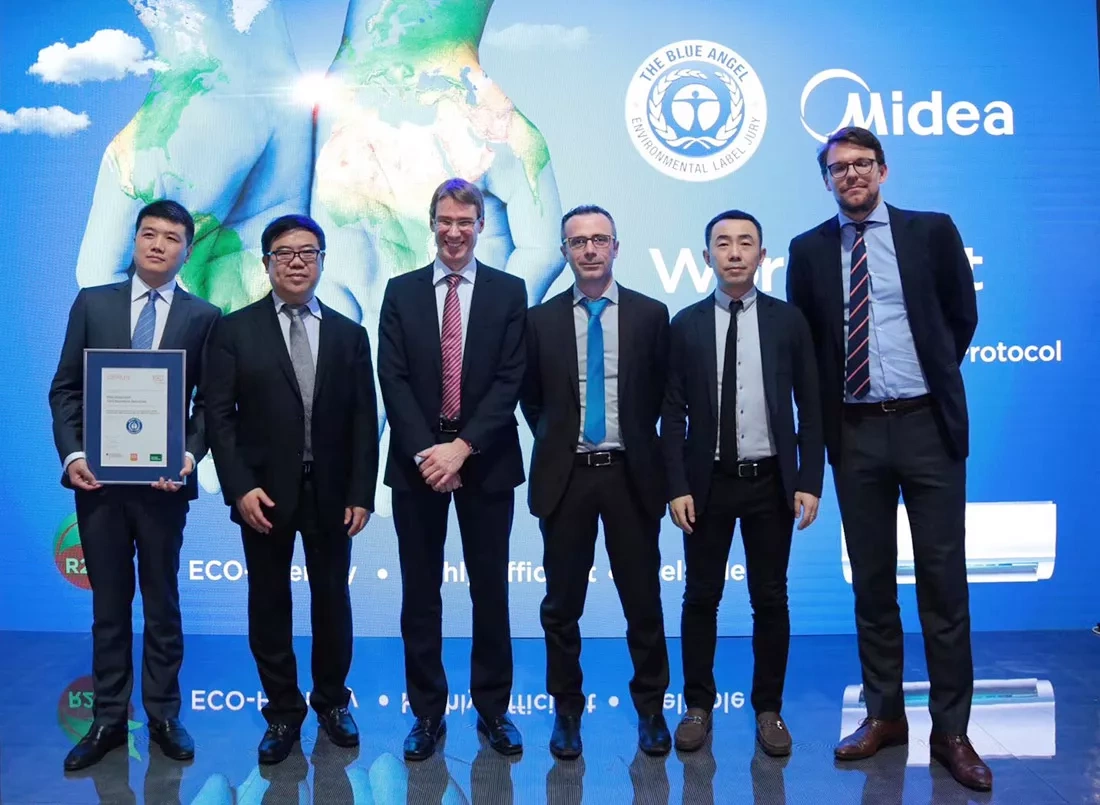In 2016, 114 million units of room air conditioners were sold worldwide. These have a considerable negative effect on the climate, not only because of the electricity consumption but also due to the hydrofluorocarbon (HFC) refrigerants used. In the German Environment Agency’s newly published background report “The Blue Angel for Stationary Room Air Conditioners – market analysis, technical developments and regulatory framework for criteria development”, the authors of the report believe that, in a single-split air conditioner, around 90% of the initial filling quantity of the refrigerant leaks during its life cycle. At present, room air conditioners mostly use the fluorine-based refrigerant R‑410A, which has a global warming potential (GWP) of 2,088 - meaning that one kilogram of R‑410A contributes to the greenhouse effect 2,088 times more than one kilogram of CO2.
The alternative to the HFC refrigerant R‑410A is the halogen-free (natural) refrigerant R‑290 (propane), which has a GWP of 3 and therefore amounts to only 0.15 % of the climate impact of R‑410A. With a consistent shift of single-split air conditioner production to R‑290, refrigerant emissions could be reduced substantially.
Furthermore, through the HFC phase down scheme in accordance with the European F-gas Regulation (Regulation (EU) No 517/2014), the average GWP of all refrigerants on the European market must be reduced from currently around 2,000 to 450 in 2030. So far, R‑290 is the only long-term solution for single-split and portable air conditioners available as standard today. Comparative studies show that R‑290 is the best option for room air conditioners also in terms of energy efficiency.
These aspects were considered for the development of the German ecolabel “Blue Angel for stationary air conditioners”. Devices with the lowest possible greenhouse gas emissions during operation can be awarded this ecolabel. This is guaranteed by high energy efficiency in the cooling and heating modes as well as natural refrigerants with a very low GWP. The device must also stand out for its low noise emissions indoors and outdoors. Specific design requirements ensure that the device maintains its high energy efficiency level during its operation phase, for instance by an easy cleaning of the air filter and the heat exchanger.
At the air conditioning fair Mostra Convegno Expocomfort 2018 in Milan, Italy, Blue Angel was recently conferred upon the first manufacturer for its particularly eco-friendly device. A single-split air conditioner with 2.6 or 3.5 kW cooling capacity and refrigerant R‑290 of the company Midea was awarded the label. The Chinese business is thus a pioneer in the most important sales market as well as the most significant producing country for room air conditioners with around two thirds of the world’s production capacities.



